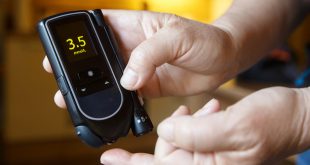Living with diabetes is a fine balance between avoiding high blood sugars, which can cause complications, and low blood sugars (hypoglycemia), which can interfere with your quality of life and in some cases cause serious harm.
Read More »Managing Low Blood Sugar
How to engage family and friends in helping manage severe low blood sugar
If you take insulin or a diabetes medication that increases insulin produced by the pancreas (such as glyburide, gliclazide or repaglinide), you may be at risk of severe hypoglycemia. Read on to learn some things your family and friends can do to help you manage severe low blood sugar.
Read More »What is a low blood sugar emergency?
There are different levels of low blood sugar – mild, moderate and severe – and they are managed differently. It is especially important to know about low blood sugar emergencies so that you or a family member, friend, caregiver or co-worker can help out in this situation.
Read More »What is glucagon and when is it used?
Glucagon is a hormone released from the pancreas that raises a person’s blood sugar by converting stored glycogen in the liver into glucose.
Read More »5 steps to reduce concerns about hypoglycemia
Having an episode of hypoglycemia is a common fear for people with diabetes. Read about 5 steps you can take to reduce concerns about hypoglycemia in this expert blog.
Read More »Low blood sugar-should we worry?
Hypoglycemia or low blood sugar is defined as a blood sugar level of less than 4.0 mmol/L in people with diabetes who are treated with either insulin or medications that cause insulin to be produced such as glyburide or Diamicron®.
Read More »Common concerns about low blood sugar
When you have diabetes, low blood sugar is a common concern. After all, when your blood sugar drops you can experience a host of uncomfortable symptoms.
Read More » Diabetes Care Community Learn, connect and care
Diabetes Care Community Learn, connect and care






